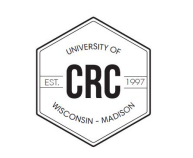One of the greatest aspects of academic life is being part of thoughtful and engaged communities in which people come together around a shared topic, place, or idea about how to inhabit and interpret the world. Here are a few of mine.
When I came to UW-Madison in 2012, I was appointed the associate director of the Center for the History of Print and Digital Culture, an almost 25-year old support structure for research and collaboration in book history, print culture studies, and more recently, digital studies. (The Center was originally the Center for the History of Print Culture in Modern America, inaugurated to be a home to print culture studies after the 1876 cut off of the American Antiquarian Society’s Program in the History of the Book in America.) As of 2015, I am happily the Director of the Center. We host visiting speakers and conferences, award a research fellowship named after James P. Danky for work to be carried out at the Wisconsin Historical Society, publish a book series with the University of Wisconsin Press, and promote graduate education in print culture and book history with our Ph.D. minor. I am actively developing many new and exciting programs to support students and scholars to work on book, print, and digital culture, but that takes a lot of financial support, which maybe you’d be interested in helping out with? Every little bit helps (and is tax deductible).
From 2008-2012 I was a graduate student fellow of the Carl L. Becker House, a residential college at Cornell University. Becker was a legendary professor of history at Cornell, and author of many books and essays on early America, intellectual history, historiography, and higher education, notably the great “freedom and responsibility” address. Coincidentally, Becker received his Ph.D. at the University of Wisconsin. At Becker House I regularly met and dined with faculty, undergraduates, graduate students, visiting speakers, and staff from all around the university for social and intellectual programs.

Growing out of my experience at Becker House, and continuing my interest in holistic approaches to undergraduate education, I am a Faculty Fellow of the Chadbourne Residential College at UW-Madison. I am new to this community as of 2018 and look forward to meeting, dining with, and getting to know the UW undergrads who make up the CRC community.
The American Antiquarian Society is a learned society and independent research library founded in 1812 in Worcester, Massachusetts by Isaiah Thomas, colonial printer and early historian of American print and book history. The AAS is home to the Program in the History of the Book in America, and is the greatest archive and research community for working in that field, anywhere. Not only are the collections superior, but the staff and community of fellows are sure to help you develop your work in directions you could not have anticipated before your fellowship. In 2009, while working on my dissertation, I received a Jay and Deborah Last Fellowship in Historic American Visual Culture from the AAS. In 2014, I was fortunate to return to the AAS for an entire semester as a National Endowment for the Humanities postdoctoral research fellow to do further research on the book that I am developing out of my dissertation. While I was at the AAS as an NEH fellow, President Obama awarded the institution with the National Humanities Medal. To support this great institution I have donated or adopted items in the collection, and you too can give to the AAS here.
Comparative U.S. Studies (CUSS) is a collective of faculty at the University of Wisconsin-Madison who are committed to the study of US culture and the interdisciplinary field of American Studies. Alongside graduate students, undergraduate students, and community members, CUSS works to enliven conversations around these important topics on campus and beyond. We put on many talks, debates, a graduate student reading group, and an occasional conference. Learn more and get involved here.



